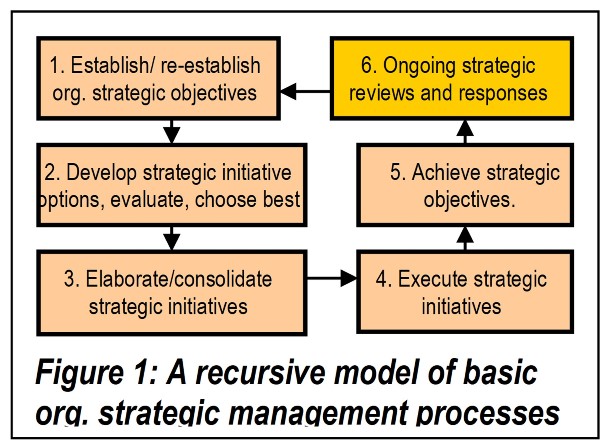as a realistic descriptor for outcomes
successfully achieved by other participants
at various stages of organisational strategic
management processes
FEATURED PAPER
By Alan Stretton, PhD (Hon)
Sydney, Australia
INTRODUCTION
Some years ago I wrote an exploratory series of five articles in this journal on project successes and failures (beginning with Stretton 2014j). Those articles raised many questions, but offered few cogent answers. In the main, they highlighted many deficiencies in what the literature had to say about project successes/failures. These were summarised in Stretton 2015e as follows.
- Different project success/failure criteria are being used by different people
- Project success/failure rates data are sparse in most areas
- The data on causes of failure are meagre indeed
In four subsequent articles (Stretton 2018k&l, 2019b, 2020c) I explored the relevance of some published causes of “project” success/failure in an organisational strategic management context. A key finding was summarised in Stretton 2018k as follows.
We have seen that probably the majority of the causes of so-called “project” failures cannot reasonably be ascribed to failures by project management. Such failures have been identified as being responsibilities of other entities.
It follows that credit for the majority of “project” successes would also be correspondingly ascribed to other entities. This aspect of so-called “project” successes and failures has received little attention in the project management literature. Indeed, as we will see, the descriptor “project success” is still quite commonly used, even when other entities have actually been responsible for, and have achieved, the successes.
This article will explore this situation further. We will look at four examples from the literature which discuss “levels” of “project success”, and discuss each of them in the context of how they relate to corresponding stages of an organisational strategic management model. Success will be defined as the achievement of a favourable outcome. Each of the examples has success assessment criteria (“success measures”), most of which relate to outcomes. Considerations of these will broadly confirm that, in post-delivery contexts in particular, achievement of such outcomes is the responsibility of, and is undertaken by, users of project (or later) outputs – and not, as tends to be implied by “project success”, by the delivering project management.
A BASIC ORGANISATIONAL STRATEGIC MANAGEMENT MODEL
An augmented linear basic organisational strategic management model
In the following discussions I will augment a five-stage organisational strategic management model which I have been using for some years (most recently shown in Stretton 2023d) with a sixth stage. I added the latter in a recursive version of the same model in Stretton 2020l, to reflect the circular nature of organisational strategic management processes. The basic format of the recursive model is shown in Figure 1.

I will be using the augmented linear formal shown in Figure 2 below, because this is the most suitable format for aligning these various stages with corresponding levels of “project success” from four different sources, to which we will shortly turn.

Figure 2. An augmented basic linear organisational strategic management framework
More…
To read entire paper, click here
How to cite this work: Stretton, A. (2023). Questioning “project success” as a realistic descriptor for outcomes successfully achieved by other participants at various stages of organisational strategic management processes, PM World Journal, Vol. XII, Issue XII, December. Available online at https://pmworldlibrary.net/wp-content/uploads/2023/12/pmwj136-Dec2023-Stretton-Questioning-project-success-as-realistic-descriptor-final-review.pdf
About the Author

Alan Stretton, PhD
Faculty Corps, University of Management
and Technology, Arlington, VA (USA)
Life Fellow, AIPM (Australia)
![]()
Alan Stretton is one of the pioneers of modern project management. He is currently a member of the Faculty Corps for the University of Management & Technology (UMT), USA. In 2006 he retired from a position as Adjunct Professor of Project Management in the Faculty of Design, Architecture and Building at the University of Technology, Sydney (UTS), Australia, which he joined in 1988 to develop and deliver a Master of Project Management program. Prior to joining UTS, Mr. Stretton worked in the building and construction industries in Australia, New Zealand and the USA for some 38 years, which included the project management of construction, R&D, introduction of information and control systems, internal management education programs and organizational change projects. He has degrees in Civil Engineering (BE, Tasmania) and Mathematics (MA, Oxford), and an honorary PhD in strategy, programme and project management (ESC, Lille, France). Alan was Chairman of the Standards (PMBOK) Committee of the Project Management Institute (PMI®) from late 1989 to early 1992. He held a similar position with the Australian Institute of Project Management (AIPM), and was elected a Life Fellow of AIPM in 1996. He was a member of the Core Working Group in the development of the Australian National Competency Standards for Project Management. He has published 250+ professional articles and papers. Alan can be contacted at alanailene@bigpond.com.au.
To see more works by Alan Stretton, visit his author showcase in the PM World Library at http://pmworldlibrary.net/authors/alan-stretton/.









